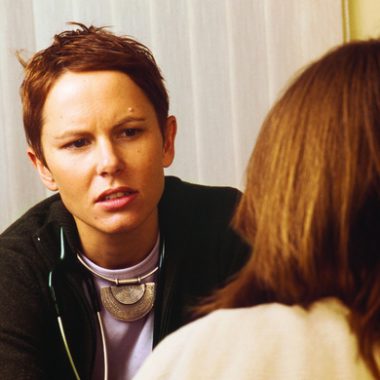Vaginal mesh implants offered on the NHS again

Controversial vaginal mesh implants have been made available on the NHS again after being temporarily suspensed.
The Government suspended the use of vaginal mesh on the NHS in July 2018 following an investigation carried out by the BBC in 2017. The investigation revealed that more than 800 women were taking legal action against vaginal mesh makers and NHS England, following complications such as the impossibility to walk and having suicidal thoughts.
However, new NICE guidance released this week revealed that it is now appropriate to offer implants to women suffering stress urinary incontinence and pelvic organ prolapse, as long as they are ‘fully informed’ about the risks and certain criteria are met.
Although NICE said in its guidance it ‘acknowledged the public concern about the risks of these procedures, especially those involving the insertion of mesh products’, it argued ‘women should not be denied effective surgical options’.
It said: ‘Instead, women should be fully informed and supported by their doctor to make the right decision about their treatment, taking into account the benefits and risks of all the options as well as any individual social or psychological factors that might affect their decision.
‘The committee agreed that a patient decision aid could help women better understand the different surgical options and promote shared decision making.’
Labour MP Owen Smith told BBC Victoria Derbyshire that NICE has been ignoring the ‘overwhelming, anectodal experience’ from women who have come forward.
He said: ‘The Government conducted its own study, as a result of the pressure we had been putting on for years, add found there was wide scale evidence of people having suffered all manner of harms, especially after five to seven years.
‘For NICE now to effectively say ‘we should just carry on regardless” is, I think, is flying over the evidence’.
NICE director for the centre for guidelines Dr Paul Chrisp said: ‘The patient decision-making aids developed by NICE in association with patients, clinicians and professional bodies will ensure every woman who is considering surgery for urinary incontinence or pelvic organ prolapse has the best evidence currently available to inform her of the benefits and risks of each type of procedure.
‘It will ensure each woman is able to decide, with the help of her clinician, which option is best for her. This might include the decision not to have surgery at all.’
He added: ‘Where surgical mesh/tape could be an option, there is almost always another intervention recommended in our guideline, which does not involve surgical mesh/tape. If a surgeon cannot provide a full range of choices to the woman, then she should be referred to one who can.
‘Surgeons must also record any intervention using surgical mesh/tape in a national database.’
Pulse October survey
Take our July 2025 survey to potentially win £1.000 worth of tokens

Visit Pulse Reference for details on 140 symptoms, including easily searchable symptoms and categories, offering you a free platform to check symptoms and receive potential diagnoses during consultations.



 Oviva’s fully remote Tier 3 Weight Management programme
Oviva’s fully remote Tier 3 Weight Management programme






